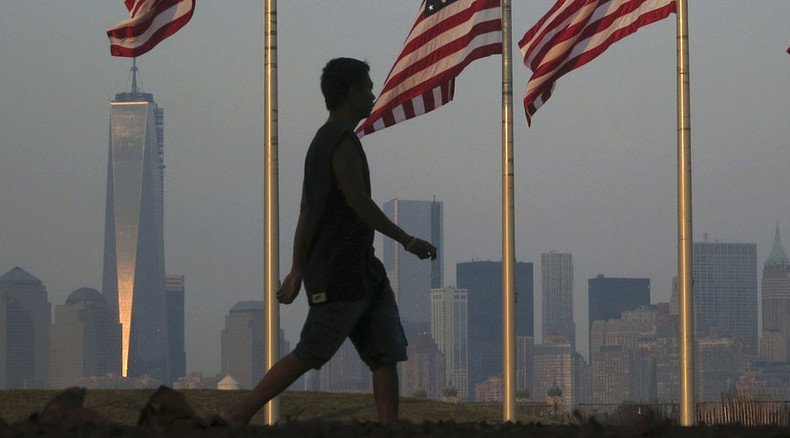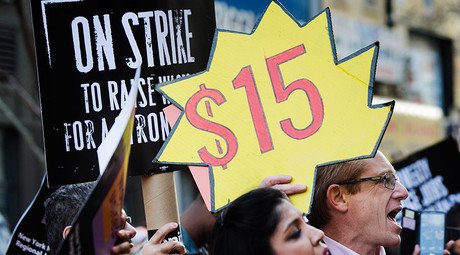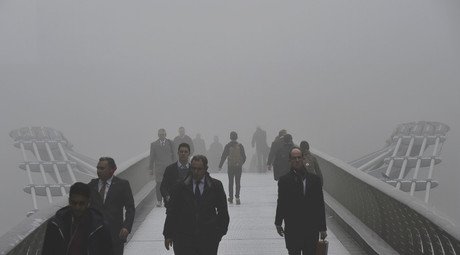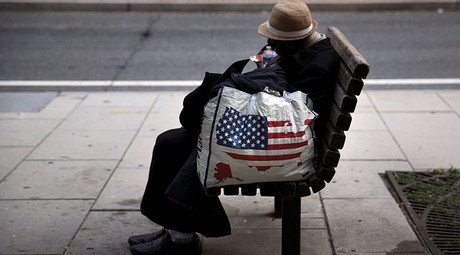Nuts in NY: Anxiety, depression, substance abuse afflict 1/5 of New Yorkers

Depression and abuse of alcohol and drugs are the top contributors of disease among New York City residents, a new report says, as threats to mental health disproportionately affect people of color and those in poverty.
Psychological disorders - such as depression, substance abuse, suicidal thoughts, and anxiety - affect vast swaths of the city's 8.4 million residents, especially depression, called the "single greatest source of disability" in the city in a new "white paper" released by New York City's Department of Health and Mental Hygiene.
Drugs, meanwhile, are not far behind. "Unintentional drug overdose deaths outnumber both homicide and motor vehicle fatalities," the report found, while substance misuse is a major cause of premature death. Alcohol abuse leads to 1,800 deaths in the city per year, as well as up to 70,000 emergency room visits among adults, the white paper reported.
The report - Understanding New York City's Mental Health Challenge - was revealed Thursday ahead of a forthcoming plan, called NYC Thrive, that will outline steps the Department of Health and Mental Hygiene will take to tackle mental health problems in the city. The plan is expected to be public by the end of the year.
"We have a set of public health issues that affect many people and affect them very deeply," Dr. Gary Belkin, a deputy commissioner of the health department, said, according to Reuters. "We know what we're going to be doing, and over the coming weeks you're going to be hearing about it."
As household poverty increases, so does the likelihood of not having preventive dental care: https://t.co/Jzb4AP0L6npic.twitter.com/qCXGKEyFQl
— nycHealthy (@nycHealthy) November 12, 2015Eight percent of New York City adults experience symptoms of depression each year, while a study of 1,000 City University of New York undergraduates found 19 percent met criteria for depression and 26 percent for significant anxiety.
New York's children are bearing a significant burden of mental health problems, which are caused or exacerbated by exposure to traumatic or "adverse events," like domestic violence or economic difficulties, the report said. Eight percent of the city's public high school students have reported attempting suicide. In a biennial survey of city public high schools, more than one in four students -73,000 adolescents - reported feeling sad or hopeless on a persistent basis in the past year.
New York City homeless population nears 60,000, over 40% are children – report https://t.co/wqgAx1bQL8pic.twitter.com/JGyR0OuRqs
— RT (@RT_com) October 27, 2015Alcohol abuse among those 21 years of age or less in the city results in about 7,000 emergency room visits each year, the report found. Gay and lesbian youth in the city are twice as likely as heterosexual youths to experience bullying on school property, and more than twice as likely to attempt suicide. LGBT youth of color may experience additional stress, the report stated.
The report included data on how poverty, race, and ethnicity compound the likelihood that a New York City resident will suffer from mental health problems.
"People from the city’s lowest income neighborhoods are twice as likely to be hospitalized for mental illness compared to residents from the highest income neighborhoods," the report said.
Serious mental illness is twice as common for the city's adults living below 200 percent of the federal poverty line compared to those living 200 percent above that threshold. Ninety percent of children ages two to five diagnosed with common mental health disorders live in poverty, the report found.
Whites are generally far more likely than blacks to receive "community-based mental health care," while being twice as unlikely to be hospitalized, according to national studies cited by the report. Nationally, there is also a discrepancy in how blacks and whites are diagnosed with basic mental illnesses such as anxiety or depression, the report said, adding that access to health care is a major obstacle in eliminating these gaps.
These variations - between low- and high-income areas of the city -- in mental health suffering and the care needed to address it reflect a lack of other options for those living in poverty, the report said.
"High rates of psychiatric hospitalization likely reflect the challenges residents of some neighborhoods face, including difficulty accessing preventive services and early care, greater exposure to stressors such as housing instability, and interruptions in health insurance," the report stated.
The report added that the estimated "annual productivity losses" in the city caused by depression or substance misuse amount to $14 billion.
"Alcohol misuse is estimated to cost NYC nearly $6 billion in citywide economic productivity losses every year, while depression accounts for $2.4 billion in losses," the report said, while "misuse of illicit and prescription drugs and alcohol in NYC together cost approximately $1 billion in criminal justice expenditures annually."















